Recent Blog Posts
Then and Now: The Evolution of the RICO Law
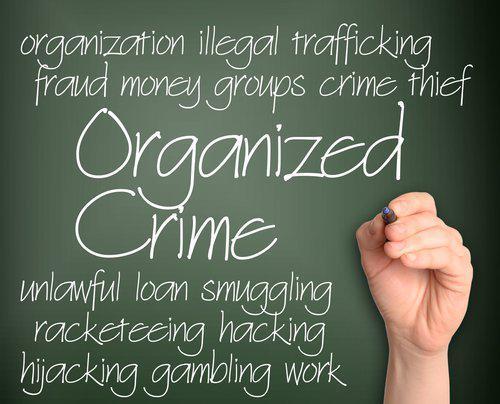 The mention of the Rico Law or more formally, the 18 U.S. Code Chapter 96, Racketeer Influenced and Corrupt Organizations (RICO) often brings to mind the five Mafia families convicted in New York City on November 19, 1986. Although the Rico Law has been on the books since 1970 when Congress passed the Act in an effort to combat organized crime, many criminal defense attorneys first shied away from using the act as a prosecution tool because they did not fully understand the power of the Act.
The mention of the Rico Law or more formally, the 18 U.S. Code Chapter 96, Racketeer Influenced and Corrupt Organizations (RICO) often brings to mind the five Mafia families convicted in New York City on November 19, 1986. Although the Rico Law has been on the books since 1970 when Congress passed the Act in an effort to combat organized crime, many criminal defense attorneys first shied away from using the act as a prosecution tool because they did not fully understand the power of the Act.
Often referred to as the atomic bomb that brought the Five Mafia Families to their knees, the RICO Act was evoked to establish the intertwined families as an operating commission linked to criminal activity for monetary gain.
Although today’s crime syndicates appear less territorial and open to stronger collaborative bonds, prosecution under the RICO Act remains in play today.
Fraud, Forgery, and Bad Checks in the State of Wisconsin
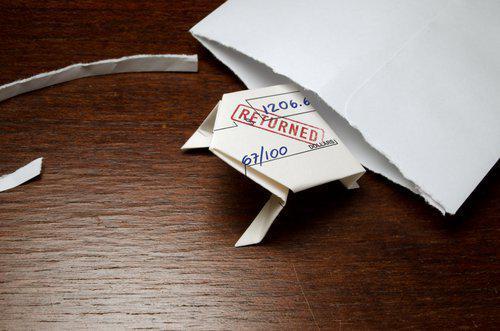 Fraud, forgery, and criminal charges resulting from writing a bad check can seem rather similar. However, there are some significant differences between these types of offenses; the most notable of which rests in the defendant’s intentions. If you are facing criminal charges for fraud, forgery, or charges related to writing a bad check, know your rights and how you may best take action to avoid maximum penalties.
Fraud, forgery, and criminal charges resulting from writing a bad check can seem rather similar. However, there are some significant differences between these types of offenses; the most notable of which rests in the defendant’s intentions. If you are facing criminal charges for fraud, forgery, or charges related to writing a bad check, know your rights and how you may best take action to avoid maximum penalties.
Forgery
Forgery is defrauding another through the alteration or writing of an object so that it appears it was written or made by another individual. For example, a woman recently had a warrant issued for her arrest after allegedly altering a check written to her by a resident at the centerat which she works. Originally written for $11, she reportedly changed it to read $11,000 and then deposited the check into her bank. Possession or use of an altered document may also constitute forgery charges, even if the person in possession of the document was not the one who altered it.
White Collar Crime Lawsuits and Criminal Investigations
 White collar crimes are often complex and involve months and years of preparations before prosecutors bring formal charges. There is no official set of crimes under the law called white collar crimes. However, federal and state crimes involving fraud and finances are generally considered to be white collar crimes. These include things such as embezzlement, securities fraud, computer crimes, and identity theft.
White collar crimes are often complex and involve months and years of preparations before prosecutors bring formal charges. There is no official set of crimes under the law called white collar crimes. However, federal and state crimes involving fraud and finances are generally considered to be white collar crimes. These include things such as embezzlement, securities fraud, computer crimes, and identity theft.
Dangers of a Lengthy Investigation
Because white collar crimes often involve many different sets of financial records and a complicated set of facts, the investigations are often lengthy. Law enforcement investigations may span months, or even years..
What If There Is a Lawsuit?
Another consequence of the sometimes-lengthy criminal investigation process is that those who have lost money may file a civil lawsuit. As part of a civil lawsuit, defendants may be required to testify under oath and provide thousands and thousands of pages of documents, Oral testimony or anything turned over in the civil case may also be used in a criminal case.
Do Wisconsin Parents Pay the Price for their Kids Drug Crimes?
 By Attorney Steven McGaver
By Attorney Steven McGaver
A recent case in Whitewater, Wisconsin should provide cause for parents to more carefully monitor the actions of their children when using their automobile. The case which involves a 20-year-old freshman student from UW-Whitewater directly impacts her father, who owns the car in which she used to sell drugs.
The student used her father's car at school and as a means to come home on the weekends and for transportation around the campus and surrounding area. Additionally, and unknown to her father, she also used it to sell drugs to a confidential informant on three separate occasions this past spring. Instead of being charged with a drug crime, law enforcement officials chose to seize the vehicle under the State of Wisconsin's forfeiture law.
Wisconsin Marijuana Laws Not as Liberal as Elsewhere in the Nation
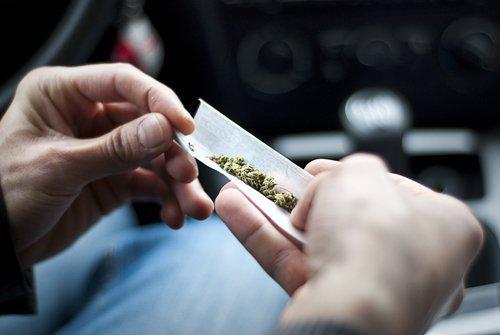 While Colorado and Washington state have legalized recreational marijuana, and a host of other states have decriminalized possession or are slated to in the near future, Wisconsin has not yet moved in that direction. Currently, the possession, sale and cultivation of marijuana in Wisconsin are all illegal. An arrest for any marijuana-related crime carries the potential for significant penalties and jail time in Wisconsin, and it is imperative to have an experienced and local criminal defense attorney on your side.
While Colorado and Washington state have legalized recreational marijuana, and a host of other states have decriminalized possession or are slated to in the near future, Wisconsin has not yet moved in that direction. Currently, the possession, sale and cultivation of marijuana in Wisconsin are all illegal. An arrest for any marijuana-related crime carries the potential for significant penalties and jail time in Wisconsin, and it is imperative to have an experienced and local criminal defense attorney on your side.
Marijuana Possession
Any amount of marijuana possession in Wisconsin is a crime, and the penalties vary depending on several factors. The first factor is whether it is your first or subsequent offense. In addition to the statutorily prescribed penalties for marijuana possession, 100 hours of community service will be added to any conviction of marijuana possession if the possession occurred within 1,000 feet of a school, youth center, public park, pool, housing project, jail, or drug treatment facility.
Bicycle Safety in Wisconsin
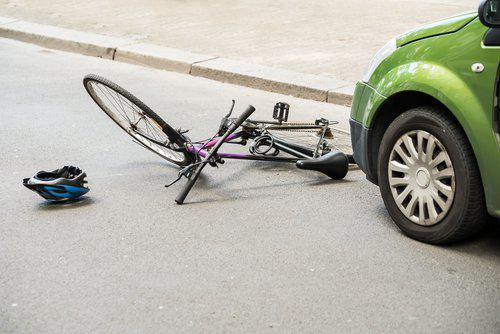 Under Wisconsin law, bicycles are considered vehicles on the roadways, meaning cyclists have an obligation to obey the rules of the road in the same way all vehicles do. They must also be treated as equal users of the road by other vehicles. Just because they are treated like vehicles, however, does not mean that cyclists are as safe as those riding in vehicles. In fact, bicycles are particularly vulnerable among road vehicles, evidenced by the fact that in 2013, In Wisconsin, one bicyclist was injured or killed every ten hours. There are several measures cyclists can take, however, to reduce the risk of crash, injury, or death.
Under Wisconsin law, bicycles are considered vehicles on the roadways, meaning cyclists have an obligation to obey the rules of the road in the same way all vehicles do. They must also be treated as equal users of the road by other vehicles. Just because they are treated like vehicles, however, does not mean that cyclists are as safe as those riding in vehicles. In fact, bicycles are particularly vulnerable among road vehicles, evidenced by the fact that in 2013, In Wisconsin, one bicyclist was injured or killed every ten hours. There are several measures cyclists can take, however, to reduce the risk of crash, injury, or death.
Bicycle Accidents in Wisconsin by the Numbers
In 2013, there were 958 crashes involved bicyclists in Wisconsin, including 868 injuries and ten deaths. In almost every case where there is a crash between a bicycle and a motor vehicle, the cyclist is injured. Bicycles are not protected in the way other motor vehicles are, but there are several measures cyclists can take to reduce the risk of crash, injury, and death. Most bicycle crashes occur between the hours of 3:00 pm and 7:00 pm, after school and commuting home from work hours. It is very important to be extra-vigilant if cycling during those hours.
Government’s Probe into Pedestrian and Bicyclist Injuries Offers Disappointing Results
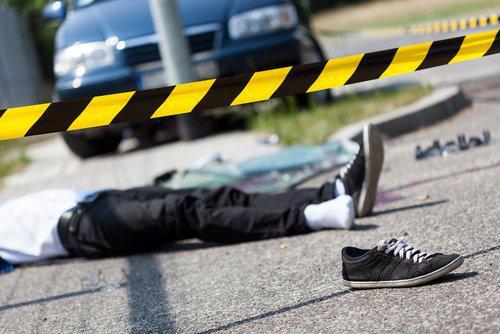 Government officials are noticing a disturbing trend: although most of the nation is seeing a decrease in the number of automobile accidents and injuries (Wisconsin’s increased in 2015), there has been a drastic increase in the number of severe and fatal injuries to pedestrians and bicyclists over the last decade. The recent government probe into why this increase is happening is providing little information as to how the problem may be fixed.
U.S. Representatives Launch Government Accountability Office Study
In an effort to determine what is causing the increase in pedestrian and bicycle accidents, U.S. Representatives Rick Larsen, Eleanor Holmes Norton, and Peter DeFazi launched the Government Accountability Office. More importantly, they wanted to determine if there were any barriers to improving the overall safety of bicyclists and pedestrians. To do this, officials:
Government officials are noticing a disturbing trend: although most of the nation is seeing a decrease in the number of automobile accidents and injuries (Wisconsin’s increased in 2015), there has been a drastic increase in the number of severe and fatal injuries to pedestrians and bicyclists over the last decade. The recent government probe into why this increase is happening is providing little information as to how the problem may be fixed.
U.S. Representatives Launch Government Accountability Office Study
In an effort to determine what is causing the increase in pedestrian and bicycle accidents, U.S. Representatives Rick Larsen, Eleanor Holmes Norton, and Peter DeFazi launched the Government Accountability Office. More importantly, they wanted to determine if there were any barriers to improving the overall safety of bicyclists and pedestrians. To do this, officials:
- Examined National Highway Traffic Safety Administration (NHTSA) data and National Automotive Sampling System data from 2004 to 2013;
Wisconsin Bicycle Fatalities: Safety Tips for Sharing the Open Road
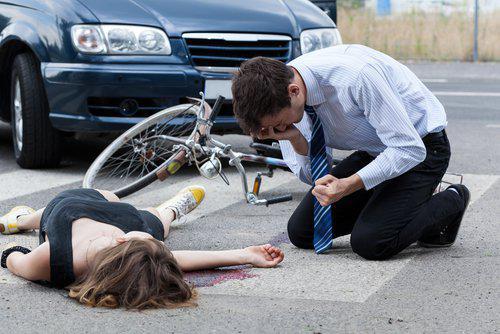 As new modes of ecological and economical transportation evolve, cycling appears to be gaining ground but sharing the open road with motor vehicles has not always been a smooth ride. The number of Wisconsin bicycle fatalities and instances of personal injury are on the rise. At the end of 2015, the Wisconsin Department of Transportation reported a total of nine deaths involving cyclists. It is reported that motor vehicle operators were primarily responsible for 58 percent of cyclist fatalities while 24 percent of cyclist fatalities were the fault of the cyclist.
Statistical data presented by the Centers for Disease Control (CDC) is even less optimistic. Cyclists are twice as likely as vehicle operators to experience personal injuries or fatalities while on the road.
To ensure the evolution of cycling, not only as a mode of transportation but as a enjoyable physical activity, The Wisconsin Bike Federation, (formerly Over the Bars Wisconsin), the country’s largest, statewide bicycle organization, offers the following safety tips for all cycling enthusiasts.
Avoiding the Hook
This tip concentrates on both the left and right hook. While riding through an intersection to avoid the “left hook” watch for motorists turning left across your path.
With regard to the “right hook” position yourself closer to the center of the right lane when passing through an intersection.
Ride Responsibly
As new modes of ecological and economical transportation evolve, cycling appears to be gaining ground but sharing the open road with motor vehicles has not always been a smooth ride. The number of Wisconsin bicycle fatalities and instances of personal injury are on the rise. At the end of 2015, the Wisconsin Department of Transportation reported a total of nine deaths involving cyclists. It is reported that motor vehicle operators were primarily responsible for 58 percent of cyclist fatalities while 24 percent of cyclist fatalities were the fault of the cyclist.
Statistical data presented by the Centers for Disease Control (CDC) is even less optimistic. Cyclists are twice as likely as vehicle operators to experience personal injuries or fatalities while on the road.
To ensure the evolution of cycling, not only as a mode of transportation but as a enjoyable physical activity, The Wisconsin Bike Federation, (formerly Over the Bars Wisconsin), the country’s largest, statewide bicycle organization, offers the following safety tips for all cycling enthusiasts.
Avoiding the Hook
This tip concentrates on both the left and right hook. While riding through an intersection to avoid the “left hook” watch for motorists turning left across your path.
With regard to the “right hook” position yourself closer to the center of the right lane when passing through an intersection.
Ride Responsibly
- Never jump the curb and continue to ride on a sidewalk;
Are You Eligible to Bring a Wrongful Death Lawsuit?
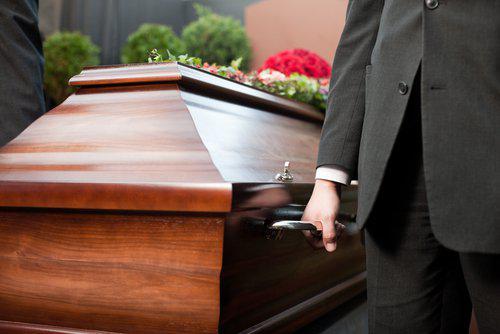 When someone we loves dies because of the negligent actions of another, or as a result of the wrongful actions of another, it is difficult to see past our grief and investigate to make sure we have a complete understanding of why the death occurred. It is very important, however, to fight the urge to avoid the stress of the situation, and instead to learn all of the facts and circumstances surrounding the death, to ensure that if there is a culpable party, they are held responsible and will therefore be deterred from acting the same way in the future. You may also be entitled to damages for the responsible party’s actions if you can prove those actions caused or contributed to the death of your loved one. Such a lawsuit is called a wrongful death lawsuit, and it is governed by Wisconsin’s wrongful death statute.
When someone we loves dies because of the negligent actions of another, or as a result of the wrongful actions of another, it is difficult to see past our grief and investigate to make sure we have a complete understanding of why the death occurred. It is very important, however, to fight the urge to avoid the stress of the situation, and instead to learn all of the facts and circumstances surrounding the death, to ensure that if there is a culpable party, they are held responsible and will therefore be deterred from acting the same way in the future. You may also be entitled to damages for the responsible party’s actions if you can prove those actions caused or contributed to the death of your loved one. Such a lawsuit is called a wrongful death lawsuit, and it is governed by Wisconsin’s wrongful death statute.
Who Can Bring a Wrongful Death Claim in Wisconsin?
On the Job Hazards: Are Coffee Workers Being Exposed to Hidden Dangers?
 The United States Centers for Disease Control and Prevention (the “CDC”) has finally issued a warning to workers in the coffee processing field, after years of ignoring numerous complaints and reports of unions and workers in that industry. If you work in a facility where you roast, grind, or add flavor to coffee, and work with the chemicals diacetyl and 2,3-pentanedione,(also known as acetyl propionyl), this is very important news.
The United States Centers for Disease Control and Prevention (the “CDC”) has finally issued a warning to workers in the coffee processing field, after years of ignoring numerous complaints and reports of unions and workers in that industry. If you work in a facility where you roast, grind, or add flavor to coffee, and work with the chemicals diacetyl and 2,3-pentanedione,(also known as acetyl propionyl), this is very important news.
What Is the Danger?
These two chemicals, diacetyl and 2,3-pentanedione, are formed naturally when unflavored coffee is roasted, and the chemicals are released when the coffee is roasted and ground. These chemicals, often added to microwave popcorn to provide the buttery flavor, have been known to cause serious lung disease to workers in microwave popcorn plants, and the most serious bronchial disease caused by exposure has been nicknamed “popcorn lung”. The CDC has been studying exposure to these chemicals for years, and has determined that it is safe to eat the chemicals in trace amounts. It is inhalation of the chemicals that causes damage to the lungs, which is why the inclusion of diacetyl in e-liquids used in electronic cigarettes is at the center of most diacetyl-related controversy these days. Coffee workers, however, inhale diacetyl in much greater amounts than the general population during the roasting and processing of the coffee, and a recent spate of illnesses and deaths of workers in the coffee industry is the reason for the new CDC warning.What Are the Health Hazards?







